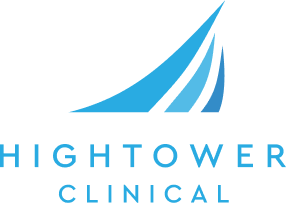Chronic Obstructive Pulmonary Disease (COPD) is a long-term lung condition that makes it difficult to breathe. It happens when airflow in and out of the lungs is blocked due to inflammation or damage to the airways and air sacs. A personalized COPD care plan is essential for improving daily life and managing symptoms.
The 4 Stages of COPD
There are four stages of COPD, each with increasing severity and symptoms.
- Mild (Stage 1)
- Moderate (Stage 2)
- Severe (Stage 3)
- Very Severe (Stage 4)
Causes and Risk Factors
The leading cause of COPD is long-term exposure to lung irritants—most commonly cigarette smoke. However, other risk factors include air pollution, chemical fumes, and dust. Genetics can also play a role, especially in people with a rare condition called alpha-1 antitrypsin deficiency. Identifying these factors early can help in building a strong COPD self-management care plan tailored to your needs.
Treatment Options
Effective treatment is a key part of any long-term management plan for COPD. While there is no cure, the right combination of therapies can help reduce symptoms, prevent flare-ups, and improve overall quality of life.
Medications
- Bronchodilators: It help relax the muscles around your airways, making it easier to breathe. These are often the first line of treatment.
- Corticosteroids: It reduce airway inflammation and are commonly used during flare-ups or in more severe cases.
- Antibiotics: It may be prescribed when a respiratory infection worsens COPD symptoms.
These medications are often included in a COPD care plan to keep daily symptoms under control and minimize hospital visits.
Oxygen Therapy
For people with advanced COPD and low oxygen levels in the blood, oxygen therapy can make breathing easier and increase energy levels. It is an essential part of Managing breathlessness with a COPD care plan, especially for those with severe airflow limitation.
Pulmonary Rehabilitation
Pulmonary rehab is a structured program that combines exercise training, education, and support. It helps improve lung function, increase stamina, and boost confidence in managing the condition. It plays a key role in a COPD self-management care plan, teaching you how to stay active and breathe more efficiently.
Surgery and Advanced Treatments
In more severe cases, surgical options may be considered:
- Lung volume reduction surgery removes damaged parts of the lung to improve airflow.
- Lung transplant may be an option for younger patients with end-stage COPD.
These advanced treatments are typically considered when other options in a long-term management plan for COPD have not been effective.
Lifestyle Changes to Manage COPD
Making the right lifestyle adjustments is essential for an effective COPD self-management care plan. These changes not only help in daily symptom control but also support your overall well-being.
Quitting Smoking and Avoiding Triggers
Smoking is the leading cause of COPD, and quitting is the most important step you can take. Avoiding exposure to second-hand smoke, air pollution, and chemical fumes is equally critical. This is often the foundation of any COPD care plan, as it helps slow disease progression.
A balanced diet provides the energy needed for breathing and helps prevent infections. Focus on:
- Eating smaller, more frequent meals
- Staying hydrated
- Limiting salt to reduce fluid buildup
Good nutrition supports better lung function and is a key component of a long-term management plan for COPD.
Exercise and Physical Activity Recommendations
Staying active improves muscle strength and helps your body use oxygen more efficiently. Even light activities like walking or stretching can improve endurance. This is especially important in a COPD self-management care plan, as it promotes independence and improves overall quality of life.
Breathing Techniques and Exercises
Breathing strategies like pursed-lip breathing and diaphragmatic breathing can help reduce shortness of breath. These techniques are essential in Managing breathlessness with a COPD care plan, especially during physical activity or flare-ups.
Recent Advances and Clinical Trials
Ongoing research and clinical trials for COPD are helping to shape a brighter future for people living with the condition. From potential therapies to new drug developments, these advances aim to improve symptoms, slow disease progression, and enhance quality of life.
New Treatments on the Horizon
Researchers are exploring innovative treatments such as:
- Biologic therapies that target inflammation more precisely
- New inhalers that deliver medication more effectively
- Regenerative therapies focused on repairing lung tissue
These emerging options are being evaluated for their ability to become part of a comprehensive COPD care plan in the future.
Can People with COPD Live for Many Years?
Yes, many people with COPD can live for many years—especially if the condition is diagnosed early and managed effectively. The life expectancy of COPD varies depending on the stage of the disease and how quickly it progresses. For example, someone with mild COPD (stage 1) may have a near-normal life expectancy, especially if they quit smoking and follow a COPD care plan. In contrast, moderate to severe COPD (stage 3 or 4) may shorten life expectancy by 6 to 9 years compared to the general population.
Conclusion:
Managing COPD requires a comprehensive care plan that includes medication, lifestyle changes, and ongoing medical support. Early diagnosis and a personalized long-term management plan can greatly improve quality of life and slow disease progression. For those seeking new treatment options for respiratory disorders, participating in pulmonology clinical trials offers hope for improved therapies and future advancements.




